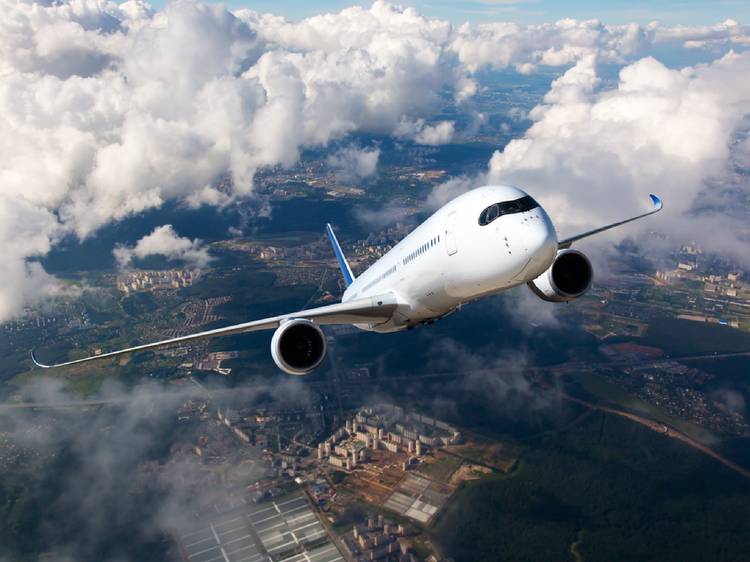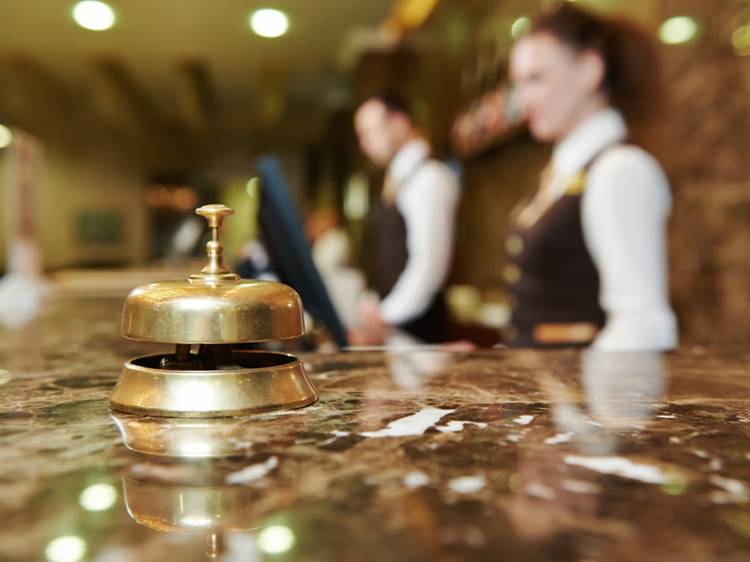So you’re thinking about a trip ...
Getting the vaccine feels like it opens up a world of possibilities – and in many ways, it does. One of the first things you might consider doing after getting your shot is dining at a restaurant with a few friends to celebrate the occasion. But is it safe?
The answer to that question is still taking shape and will inevitably vary from country to country and city to city. The truth is there are still plenty of unknowns – namely, how the vaccine affects your ability to spread the virus and how it holds up against new Covid-19 variants.
The vaccine is helping you, but the goal is to protect others.
As you might imagine, those two variables are risks you’ll have to take into account when deciding whether or not you’re ready to make a reservation. And really, that’s a lot of what post-vacc life will be like in the early days: assessing the landscape and making smart decisions for yourself and others.
That last bit is especially important, says Dr. Irfan Hafiz, an infectious disease specialist and chief medical officer for select Northwestern Medicine hospitals in Illinois.
“A lot of this pandemic isn’t just about the individual; it’s about society and how we protect each other. [Wearing a] mask isn’t just about yourself, it’s about protecting others, too,” Hafiz explains. “Similarly, the vaccine is helping you, but the goal is to protect others. So even if you are vaccinated and you don’t get as sick, you could potentially be transmitting [the virus].”
As tempting as it may be to throw caution to the wind once you’re fully vaccinated (FYI: two weeks after your final shot), many experts agree that it’s best to take baby steps and closely monitor what’s happening in the community around you.
“It depends on what kind of risk you want to live with,” says Dr. Julian Tang, a clinical virologist and honorary associate professor at the University of Leicester in the U.K. “If you want to be much more conservative, then you might want to wait until at least most of your state population has been vaccinated because then most people you encounter will be immune to some extent.”
We can probably relax some, but it’s not going back to normal yet.
Hafiz says that “magic number” is between 70 and 75 percent of the population being vaccinated, adding that it’s important to keep an eye on local infection rates, too.
“If we can get to low positivity rates and high vaccination rates, then opening things up [and] relaxing some measures makes the most sense,” Hafiz says. “Right now, ... we’re kind of in this gray area. We can probably relax some, but it’s not going back to normal yet.”
Both Tang and Hafiz agree that reopening too quickly could inevitably cause Covid-19 cases to spike again, even as the vaccine rollout heats up. This is particularly worrisome when it comes to indoor dining at restaurants and bars, where people are leisurely hanging out and interacting without masks while they eat.
“I’m all in favor of opening up, but we should do it mindfully and gradually, watching where things are going and seeing how things proceed there,” Hafiz says.
On top of that, we know that the vaccine won’t work for a small portion of the population – it’s why Pfizer is advertised as 95 percent effective, for instance.
“If you have 20 people meet in a room, maybe one or two of them haven’t actually responded to the vaccine,” Tang explains. “We know there’s a 5-10 percent failure rate anyway, but that may undermine the confidence in the vaccine. … You have this myth that the vaccine doesn’t work, when in fact that vaccine works very well.”
In other words, if you can wait until more people in your community have been vaccinated, the chances of transmitting Covid-19 to a fellow diner or server who’s not protected go down considerably (it’s the guiding principle for herd immunity). And as Tang points out, it’s important that the public trusts in the vaccine during this bridge period.
The mask is one of the most useful, cheap, versatile means of protection.
With all of this in mind, if you do decide to dine out, it’s important to size up the restaurant to ensure capacity limits are being maintained. Then, consider who you’re eating out with. Hafiz says dining out with your significant other or going on a double date with another vaccinated couple are safer options. Now's not the time to reunite with your entire contact list.
“It’s when it starts to go beyond that and you start to talk about six to eight couples – something you’d do for a birthday party or a baby shower, where it’s a larger group,” Hafiz says. “Those are going to be tough for a while.”
Safer still are outdoor dining and takeout – options that both experts pointed to as smart baby steps as the world reopens and more folks get their shots.
Above all else, don’t forget your mask and social-distancing manners – yes, even if you’re fully vaccinated. In public spaces like restaurants and bars, it will still be critical for guests and servers to don face coverings in an effort to protect each other.
“The mask is one of the most useful, cheap, versatile means of protection," Tang says. "It doesn’t completely stop exposure, but it reduces that exposure and contains the virus if you are infected and don’t know about it.”
So, is it safe to dine indoors once you're fully vaccinated? While it's certainly better than eating out sans vaccine, there are very real risks that every diner will have to assess. Ultimately, like so many other choices we've had to make in the past year, there's no one-size-fits-all approach to navigating this new normal. But when we're armed with information, it's easier to make educated decisions for ourselves and those around us.





